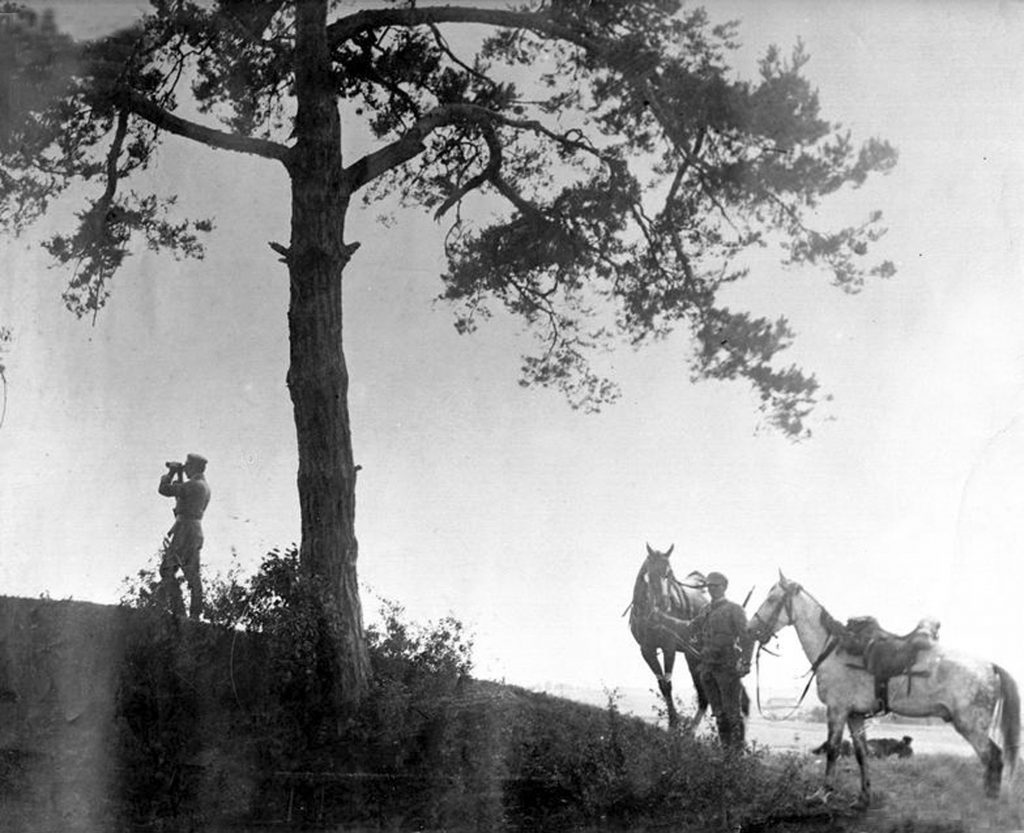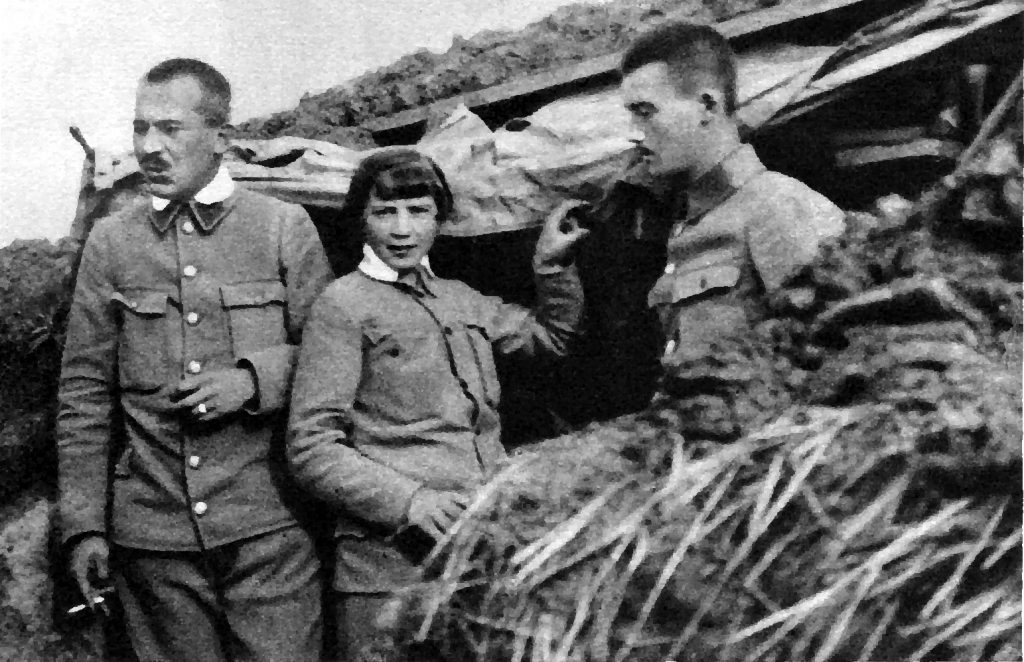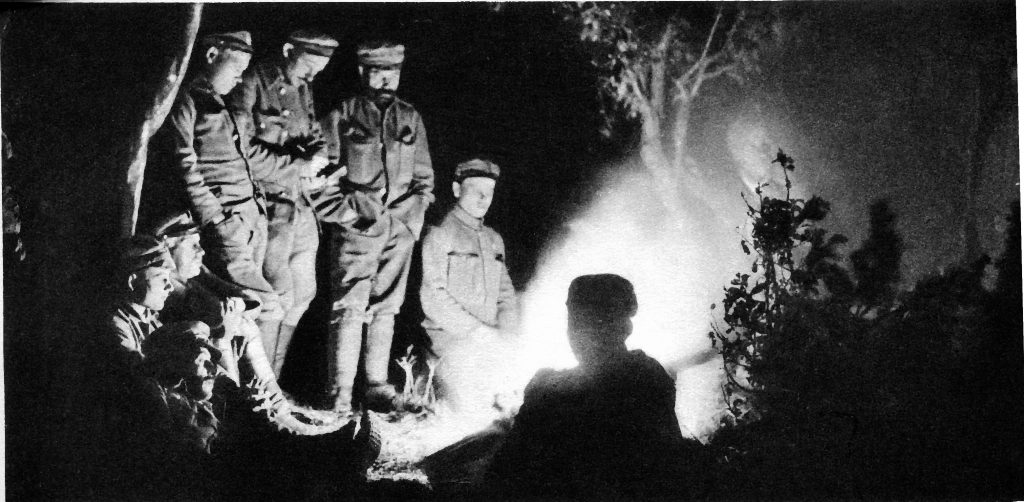NEWS
14/09/2017
I’d like to bring these soldiers to life
This is going to be a classic, epic war film. The budget of Legions exceeds 28 million PLN, making it one of the most expensive productions in the history of Polish cinema. Hundreds of extras, dozens of horses, spectacular battle scenes including the famous uhlan charge at Rokitna and the bloody, destructive clash at Kostiuchnówka. Though Darek Gajewski’s movie will feature a number of historical figures (including Jan Frycz as Józef Piłsudski,) its two protagonists are Józek (Sebastian Fabicki) and Tadeusz (Bartosz Gelner) – two young men representing completely different attitudes to life, Poland, and the world. The Legions are slated to launch in October 2018, coinciding with the the 100th anniversary of reestablishing independent Poland.The producers have stated that their film responds to the need for building modern patriotism.

archive photos that inspired Darek Gajewski while creating “Legions”
Magdalena Żakowska: What’s modern patriotism, anyway?
Darek Gajewski: It’s patriotism without any hangups.
Hearing this word, I immediately think of the Warsaw Uprising, currently the biggest flashpoint of conflict over patriotism.
Some people consider it a horrific tragedy, others a major victory. That’s the case with the entire history of Poland – you either love it or hate it. I think both of these attitudes are outmoded, emotional, and pointless. Our history is what it is. We don’t have to either love it or hate it, but we should approach it with respect and understanding.
World War I is a complex, multifaceted period of our history. Polish Legions under Austrian command… Do you think the average viewer will do their homework before watching the movie?
I assume the audiences know very little about this fascinating period. The story starts in 1914 on the Russian-Austrian border shortly before the Polish Legions’ departure from the Oleandry district of Krakow, and ends at the Battle of Kostiuchnówka in 1916. The epilogue shows the events of 1918. This is a unique moment not just in the history of Poland, but of the world. You asked about modernity; with its tremendous technological advances, weapons of mass destruction, phones, planes, machine guns, and trench warfare, World War I was the starting point of the modern world. But my story is centered on the lives of two boys and one girl. Józek’s presence in the Legions is an accident – he’s a street kid from Lodz, an illiterate thief who knows nothing about patriotism or national identity. His counterpart Tadeusz, a noble scion, is strongly patriotic.
What’s the girl doing there?
Can’t tell you that… not yet. But she’s not a nurse! Girls had a vital role in the Polish Legions, especially early on, over the first six months: they were intelligence officers. Women’s League, an organization which exists to this day, had its roots in the Legions.

archive photos that inspired Darek Gajewski while creating “Legions”
Which war films did you watch prior to shooting The Legions?
Steven Spielberg’s Saving Private Ryan. Its groundbreaking combat scenes have transformed the genre forever. I also like Tony Richardson’s Charge of the Light Brigade and Ridley Scott’s feature debut The Duellists. But I don’t know any good novels or movies about the Polish Legions…
…even though war was a popular subject in Polish filmmaking.
Yes, it’s a longstanding tradition. All our greatest directors – Wajda, Has, Munk, Różewicz, Morgenstern – made war films. I’m very fond of Wojciech Has’ postwar narrative Lydia Ate the Apple. However, Polish cinema lacks continuity in this genre. We’re great at niche arthouse films – Polish Film Institute does a great job here – but it’s still hard to finance high-budget productions, and you just can’t do costume and war dramas on the cheap.
28 million… is it thrilling or terrifying for the director?
I’m 50 and quite hard to terrify. Sure, I’m thrilled to be working on this, it’s a lot like playing with toy soldiers – but we have to bring these soldiers to life competently enough to provide an immersive experience for the viewers.
Every man dreams of taking a spin in a Ferrari and every director dreams of making a high-budget war film?
I wouldn’t compare this to driving a Ferrari – it’s more like a ride in a fighter jet. I think sports cars are mostly about making yourself feel better, and there’s just no time for that in filmmaking. A movie like this is a challenge and a great adventure. Around 60 shooting days, sets filled with hundreds of extras, horses, explosions… A huge scope and a huge responsibility.
Why you, exactly?
I was contacted by a foundation organizing the celebration of the centennial of Poland’s independence. I happen to know a few things about this period in our history: I’ve read a lot about it, several members of my family took part in these events, a portrait of First Marshal Józef Piłsudski hung in my parents’ dining room all through my childhood and watched me eat my soup… I’m glad of the opportunity to make this film. The history of the Legions is well-documented both in text and photographs – handheld still cameras first started to appear around that period. When I started thinking about this film, photographs were my greatest source of inspiration.

archive photos that inspired Darek Gajewski while creating “Legions”
The Legions sold postcards to finance various initiatives. These photos showed two distinct types of scenes. Some were unretouched, candid snapshots – back then people weren’t aware of photography’s inherent power of self-creation, they didn’t take selfies or mug to the camera. These photos showed young boys in rags huddled around bonfires or slogging through mud. And on the other extreme there were colorized, idealized depictions of uhlans and legionnaires. I’d like to find my place somewhere between these two images of the Polish Legions. Hopefully this will be a tale about a few brave, cool guys and their cool commanding officer; about people who fought and stayed in these trenches not because the Kaiser told them to, but because they wanted to accomplish something that seemed impossible at the time – to recreate an independent Poland. And they did! How did they manage that? Because they were so valiant, their commanding officers were smart, and the entire army was republican, cognizant of the goals and costs before it. They were able to set their differences aside for the duration of the conflict.
Do you feel any political pressure in connection with this film?
I don’t. But then, I live in an environment where people with different views are capable of polite conversation instead of verbally pummeling one another. Differences of opinion aren’t grounds for hatred on the tiny planet which I inhabit.
And you’re not worried that your film will be exploited in the political scuffles around the centennial celebrations?
If the commemoration of the 100th anniversary of the independence of Poland becomes a political quarrel, I won’t be able to avoid it anyway. We cannot allow ourselves to boycott events of such importance, no matter who’s in charge or who won the elections. So here’s my answer: I’m not worried, because I believe that, given the solemnity of the occasion, politicians on both ends of the spectrum won’t stoop to bickering. Personally, as a director, I’m looking forward to this intellectual challenge: how to talk about the fascinating historical phenomenon of the Polish Legions.
Interview by Magdalena Żakowska (translated by Dariusz Kołaczkowski)